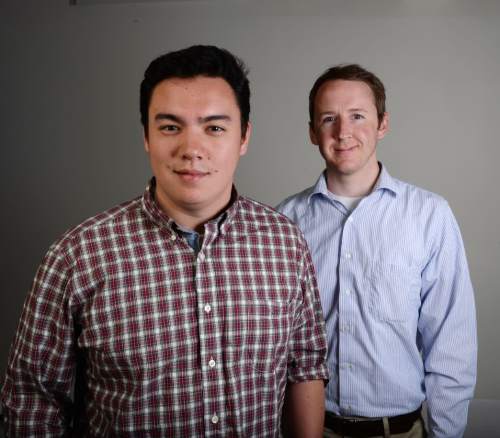This is an archived article that was published on sltrib.com in 2015, and information in the article may be outdated. It is provided only for personal research purposes and may not be reprinted.
I have a confession to make: The Tribune's anonymous sources are, invariably, flawed.
Every last one of them.
No, I'm not about to reveal the sources from our recent stories about coaching losses in Utah's football program or a rift between head coach Kyle Whittingham and athletic director Chris Hill.
I won't even hint at them. For instance, if I were to say how many degrees separated them from the situation, that'd be a hint.
But I will concede a few points about anonymous sources.
None of them hears all, or sees all, or is omniscient.
Some of them, undoubtedly, skew and lie, and some of these may do so without even realizing they are skewers and liars.
All of them are subject to the occasional folly or faulty memory.
Anonymous sources are — at least for the foreseeable future — human.
This column isn't an excuse, or a bad attempt at making an apology: Nothing we've attributed to an anonymous source in recent weeks has been proved wrong, that I'm aware of, besides the dollar amount of Hill's initial contract proposal for defensive coordinator Kalani Sitake ($600,000 per year, not $550,000 — which we corrected within hours of first publishing online).
Nor am I denying that by granting somebody anonymity, we give them the power to slander without consequence, and that anonymous sources can manipulate the media to their benefit.
That's legitimate cause for skepticism.
But there are three things we do to ensure that our reporting is as fair as possible, while still uncovering truths that would otherwise stay buried.
1. Reporters and editors judge an anonymous source's credibility. As humorous as the notion was, my source is not Tribune columnist Gordon Monson and vice versa. The only pressure on Monson and me was to be ethical, not to make a buck — if, indeed, we even made a whole buck off those recent stories and columns.
I would not have left the dinner table on Dec. 25 to falsely report that offensive coordinator Dave Christensen was hired by Texas A&M. I wanted a winter coat for Christmas, not professional ruin.
2. We give others impacted by the anonymous source's information a chance to respond. We call, email, visit — whatever we can do before deadline to let people know that we're trying to reach them for comment about something that affects them. Again, even on Christmas. I likely booked a one-way ticket to hell when I reached out to Christensen's wife and two daughters, but if I was wrong and didn't try, I was going there anyway.
3. We tell you it comes from a source. This may sound inane, but it's actually pretty important. When something is true, and we know it's true because we witnessed it with our own eyes, heard it with our own ears, or read unassailable documentation, we simply write it.
Anonymous or not, when information is attributed to a source, that should alert any scrutinizing reader that it's unverified.
Even people's opinions about themselves — "I like sunshine," for instance — are technically unverified. Maybe they're eager to resonate with sunshine fans.
The truth is a complicated thing.
But it's our job to dig at it. So while we understand that people's livelihoods can be affected, and that there are dangers that come with anonymous sourcing, we're going to use whatever we can to get as close to it as possible.
And whether we use anonymous sources or not, our names are attached to the story.
Twitter: @matthew_piper



